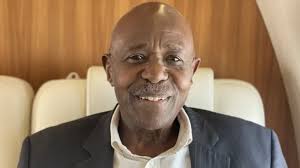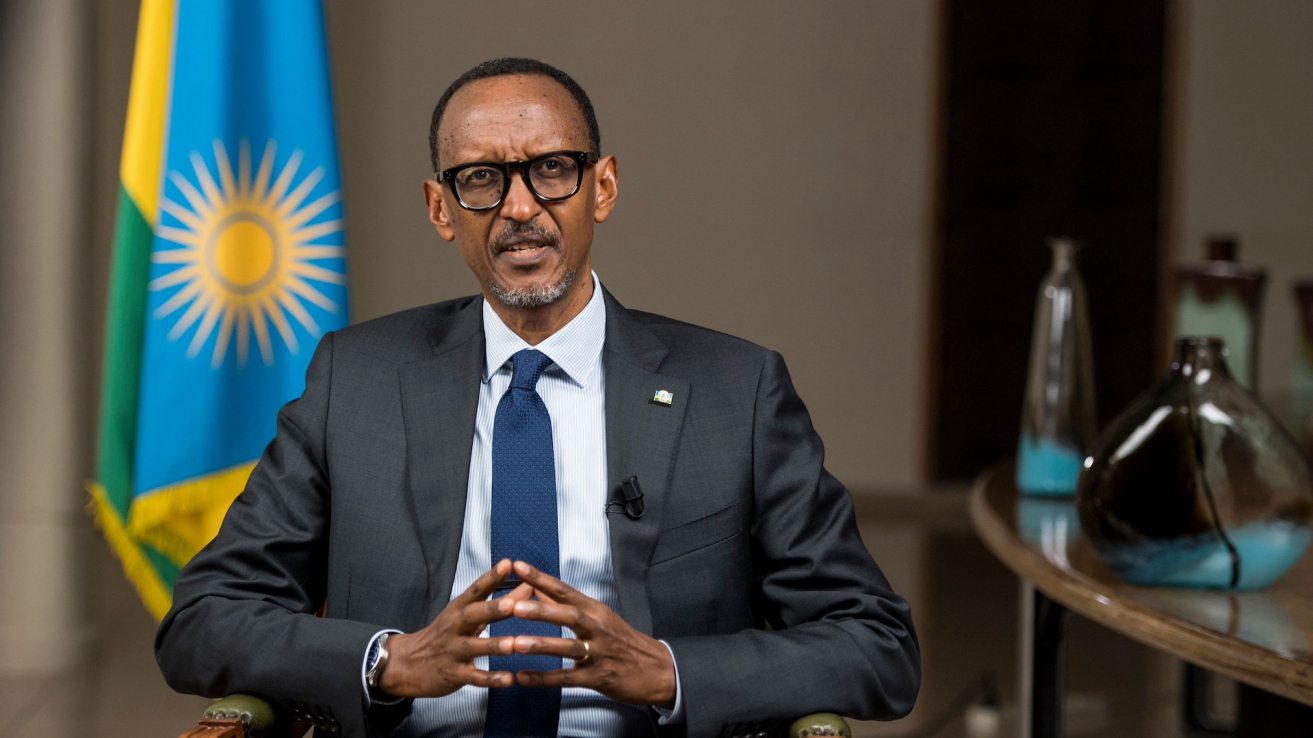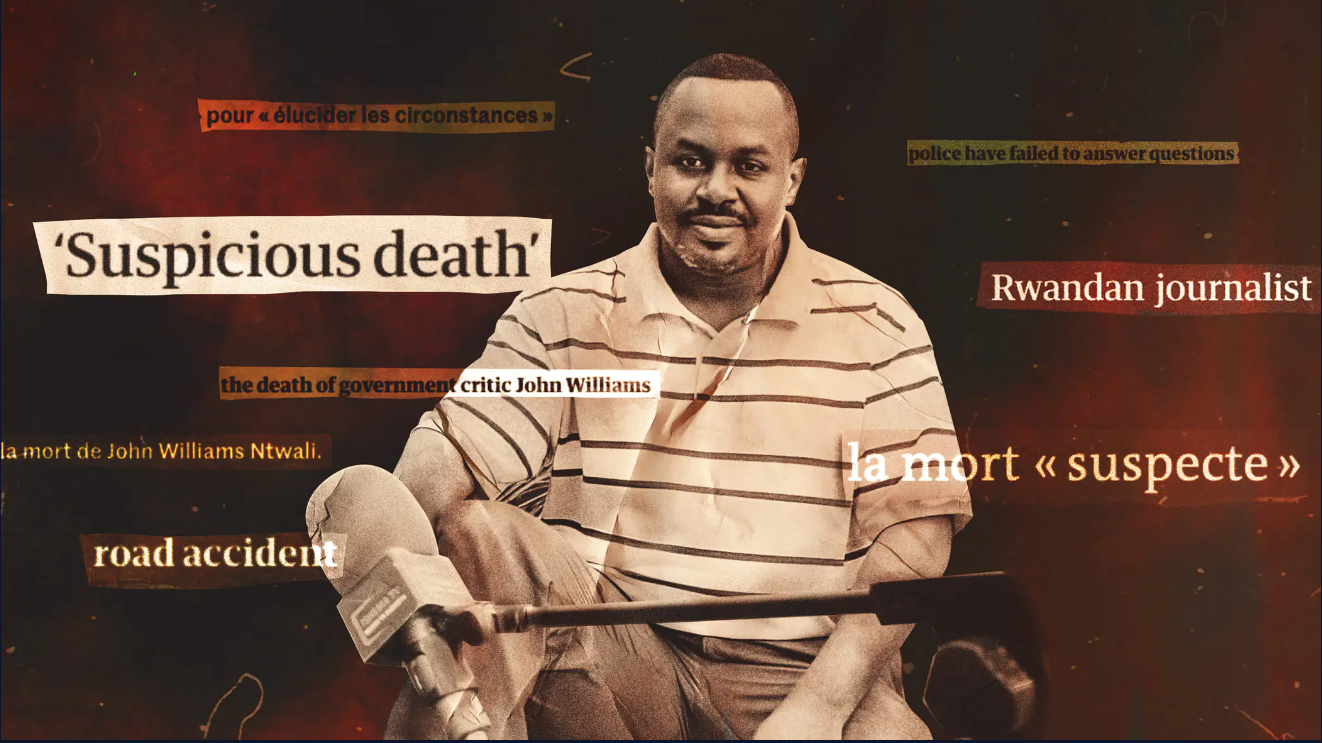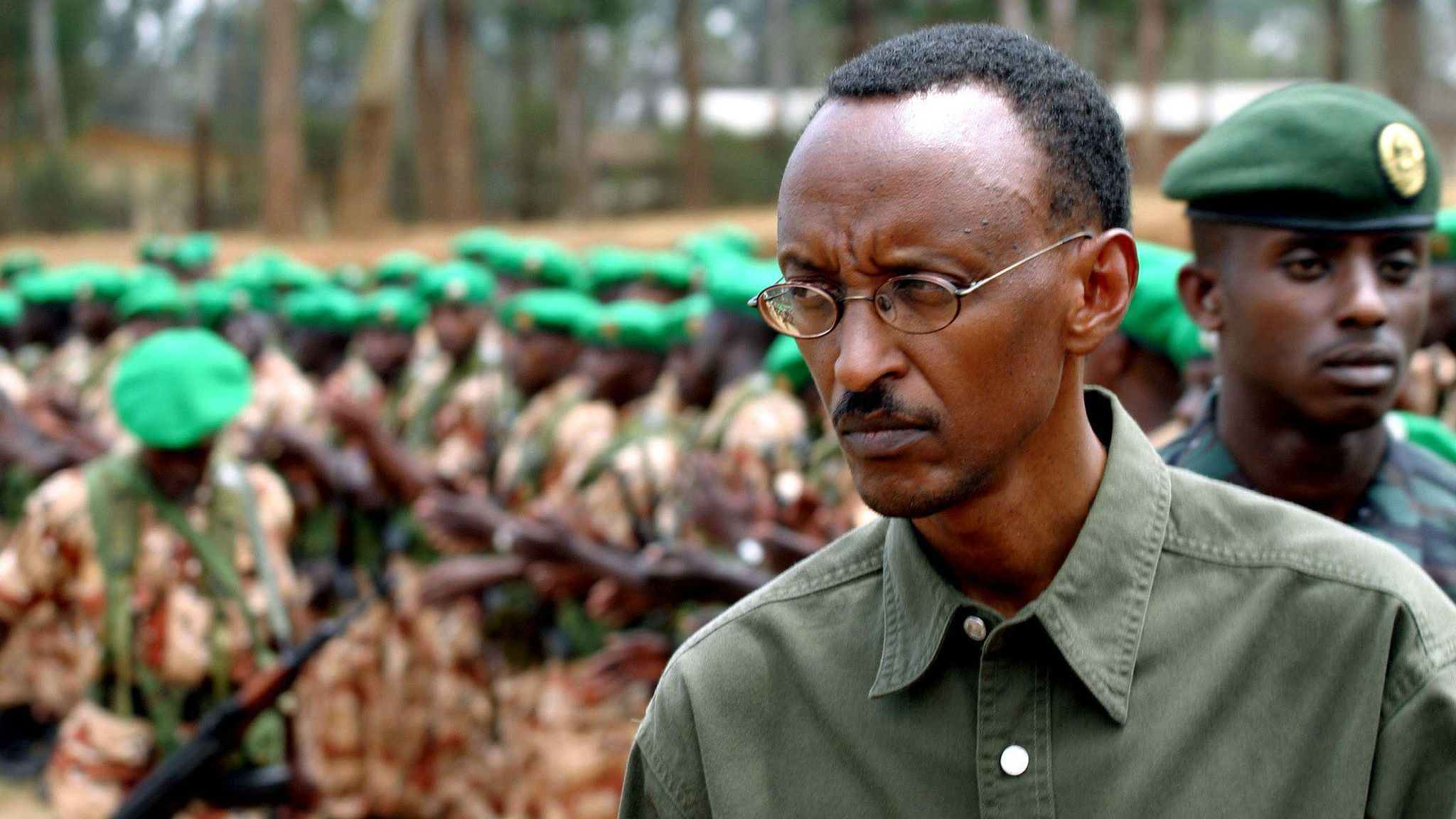
Paul Rusesabagina: “No one can silence me”
In one of his first interviews with European media since being released from Rwandan prison in March 2023, human rights activist Paul Rusesabagina, portrayed as a hero in the movie “Hotel Rwanda,” discusses his time in prison, the threats he exper...
May 29, 2024In 2020, Paul Rusesabagina, a human-rights activist and critic of Rwandan President Paul Kagame, was on a flight from the Middle East for a planned trip to Burundi; instead, he was forcibly taken to Kigali, where he was arrested by Rwandan authorities.
In September 2021, he was found guilty of terrorism-related charges and sentenced to 25 years in prison. After writing a letter to Kagame asking for a pardon in October 2022, his sentence was commuted, and he was released in March 2023.
Known for having saved over a thousand people during the Rwandan genocide, Rusesabagina fled Rwanda for Belgium, where he applied for asylum and became a citizen in 1996. In exile in Belgium and then the United States, he claims he has experienced threats originating from the Rwandan government since 2005.
As part of the project Rwanda Classified, on Rwanda’s efforts to silence its critics, Forbidden Stories and Knack spoke with Rusesabagina on April 27th and May 1st, in one of his first interviews with European media since his release. This excerpted interview has been lightly edited for clarity.
This is one of your first interviews with European media since your release from Rwandan prison last year. What is your main message for the European public?
Rusesabagina: When I was going through the genocide in the Mille Collines hotel in 1994, I called everyone in Europe I knew… the Belgian administration, the Elysée in France. I wanted the world to get involved in what was happening, to save lives. But Europe closed its eyes and ears and didn’t do anything. What do we see today? We changed dancers but the music and dance have remained the same. The music was killing in 1994, and this is still going on [in Eastern Congo, the UN expert group on the DRC has collected evidence of Rwandan troops fighting alongside the M23 rebel group, known for committing human rights violations. Rwanda has consistently denied any military presence in DRC]. The EU has recently signed an agreement on exploiting minerals [with Rwanda, suspected of extracting minerals illegally from the DRC]. The EU is openly supporting [Kagame] who goes to steal blood minerals [in the DRC]. So I ask the EU: where were you in 1994, and where are you today?
Paul Rusesabagina
HUMAN-RIGHTS ACTIVIST
“The music was killing in 1994, and this is still going on. I ask the EU: where were you in 1994, and where are you today?”
Let’s go back to August 26th, 2020. You took a flight from Chicago to Dubai and thought next you were heading to Burundi. But the private jet – operated by the Greek Gain Jet – suddenly landed in Kigali. Why did you end up in Rwanda?
My kidnapping was facilitated by a man of God, pastor Constantin Niyomwungere, who I met in late 2017, early 2018. We kept in touch, and I even invited him to my house. We became friends. He told me: “I heard that you talk about justice, reconciliation, and dialogue. Your message is very important, and the whole world is willing to listen to you. Why don’t you come to Burundi to talk to my churches? We can hire a private jet from somewhere to take you to Burundi.” I never knew we were going to Kigali instead of Bujumbura. I only realized that once I saw the control tower of Kigali airport. I almost collapsed. When they opened the door of the plane, I saw soldiers waiting on the tarmac. I started shouting: “I am Paul Rusesabagina and I am being kidnapped. They are going to kill me.” Next, the people of the Rwandan Investigation Bureau and the Directorate of Military Intelligence got hold of me. They tied my arms on my back, put a bag over my head, threw me in a car, and took me to an unknown place.
You were in jail for two years and seven months. How do you recall that period?
It was hell, being tortured every day. They tied me up. They hit my whole body with their fists and legs, and stepped with their military boots on my neck. I was in solitary confinement, not talking to anyone and only getting out one hour a day. When I was thrown in prison, there were not more than 10,000 prisoners. By the time I left, it was overcrowded by several thousand. People are dying, being buried in those prisons.
While you were in prison, Forbidden Stories and Amnesty International published the news that your daughter Carine Kanimba had Pegasus on her phone.
That is how the Rwandan government does things. They have me in prison, so if my daughter speaks out, then she’s the next target. They are following my whole family.
You were sentenced to 25 years but eventually got out after 2 years and 7 months. Why?
Because of pressure.
Paul Rusesabagina
HUMAN-RIGHTS ACTIVIST
“I saw soldiers waiting on the tarmac. I started shouting: “I am Paul Rusesabagina and am being kidnapped. They are going to kill me.”
Could you tell us about your release from jail?
It was March 24, a Friday, and I was going to have my weekly five-minute call with my family. I called at 3 pm, as usual. They told me I was going to be free. But after the call, I went back to my room and nothing happened. Until late at night. I suddenly heard that the huge padlock of the metal door downstairs was opened. Shortly afterwards I also heard the door of my floor hitting. Then I saw the prison director, his deputy, military guys and police officers all invading. “You, get up!”, the director told me. “Get up and get out of this place.” But why in the middle of the night? Why should I trust them? So I refused. Later they put me through to the American chargé d’affaires in Rwanda by phone. She informed me that I was set free and passed the phone to a US diplomat who also came to see me every month. He was very cheerful, laughing, happy. “Okay,” I said. “Now I can go.” So I started packing my books and clothes.
Before his arrest and time in prison in Rwanda, Paul Rusesabagina says he had received several threats in Belgium, where he was living in exile (read about it here).
Tell us about the death threats you received in Belgium.
I became a huge problem for Mr Kagame since 2004, when the movie “Hotel Rwanda” came out, when I got the Presidential Medal of Freedom from the U.S. President George W. Bush, and when my autobiography “An Ordinary Man” was published. Mr Kagame was not happy, I was a threat to him. Either you are with him, on his side, or if you are against him, you are a dead person.
And what exactly happened in 2018?
My daughter Lys was contacted by a person I don’t know. He said his dad was saved by my father. He was credible because he spoke about what my dad did 50 years ago. Nobody else knew that. Next he sent her audio files in which you hear people talking. About how to follow and harass people and even kill people abroad. I wasn’t really surprised to hear that, because transnational repression is a practice always done by today’s government. In the audio, you also hear them talk about targets. The first target they talk about is me, and a doctor who lives in the US. They also spoke about people in Belgium who they could threaten.
Paul Rusesabagina
HUMAN-RIGHTS ACTIVIST
“Either you are with [Paul Kagame], or if you are against him, you are a dead person.”
Being an American resident, have you ever been warned by the American authorities regarding your safety situation in Belgium?
I’ve got to be careful in whatever I do, and wherever I go. Anything can happen anywhere, anytime. One time when I was speaking at the University of Texas, I had four policemen guarding me, two to my left, two to my right. At a given time people [presumed by Rusesbagina to have been sent by the Rwandan government] came to disturb my speeches.
Have you received police protection in Belgium as well?
On some occasions, yes, I did. They took care of me.
How did the threats in 2018 impact your life in Belgium?
We decided to live partly away from Brussels. And according to what we have seen, the Belgian government has been reluctant to tell those spies, those people who have come to kill, that “either you stop or leave our country.”
The Belgian Federal Prosecutor’s Office is not only investigating the death threats against you. It’s also still conducting an investigation into terrorism charges against you.
Rwanda tried to use the Belgian police and the Belgian prosecutor to get me involved in a lot of things that I never did. The [Belgian] Federal Prosecutor’s Office even sent documents to Kigali that they seized from my home. They took my computer and sent everything to Kigali. But have they found that I sent money [to fund terrorism]? I have never heard of any proof for that.
The spokesperson of the Belgian Federal Prosecutor’s Office did not comment on the possible evidence gathered in the investigation, referring to its ongoing status, and said that “the goods seized during a search carried out in Belgium were […] transmitted to the Rwandan authorities in compliance with the strict rules of international cooperation and Belgian procedure.”
Are you saying that also now that you’re released from Rwandan prison, you still fear for your life?
It became worse.
Is transnational repression something from the past or is it still happening today?
People should be careful. With the RPF, in order to maintain their power, transnational repression is becoming stronger. They always want to threaten opponents, wherever they are. The RPF does not give up. And they do not change their theories and practices. Threatening and killing is a job. And wherever you are, in the country or outside, they will show you that they don’t fear you.
Paul Rusesabagina
HUMAN-RIGHTS ACTIVIST
“I will never allow my enemies to see me changing. The very time I change, I'll be pleasing them, and I'm not ready to give that gift.”
Paul Rusesabagina was released in March 2023.
How has your past year been?
After my release, I was very weak. That is why I spent a whole year without saying anything, without doing anything, just being with my family and friends, and thanking many people who intervened and fought for me when I was in prison. Also, when I was released, my family had gathered 1352 articles from different media worldwide. I still haven’t finished reading all of them.
Are you planning to stay in the US ‘in quiet reflection’ or do you see a public role for yourself in the future?
When I was leaving the prison in Kigali many prisoners lined up. They were singing and shouting. “Mr. Rusesabagina, you have been our voice before you came to this prison,” they said. “Now that you are going out, please be our voice again.”No one can silence me. I know one day democracy will come in Rwanda. If then I still happen to be there, why wouldn’t I take up a political role?
In July Rwanda is organizing new presidential elections. What do you expect?
To me, the elections are already done. Don’t you fear a situation whereby somebody is elected at 98.79%? Can you imagine that? Instead of stealing one kilogram, he steals the whole bag of 100 kilograms. But some Kagame people – or people who pretend to be with Kagame – might be fed up and might not want to keep silent forever. In his own team, many people are not happy. Maybe one day they will raise their voices. The world is watching. On the other hand, Kagame still has support from Western countries.
Mr Rusesabagina, after all these years of threats, prison and tracking, how are you doing?
One of the best lessons I learned in my life is to never give up. Because the very time you give up, you are pleasing your enemy. So I have always stood up for what I believed in since I was young. Now I’m almost 70. I will never allow my enemies to see me changing. The very time I change, I’ll be pleasing them, and I’m not ready to give that gift. So I have been doing well. I’m improving.
The Rwandan government and the office of the president of Rwanda did not answer our requests for comments.
See Also:

Bribery, Lashes, Death And TVE...
Rehabilitation or transit centers are spread across different parts of Rwanda. As per official narra...
Articles
Why Kagame Would Not Win A Fre...
In a hypothetical scenario where free and fair elections were conducted in Rwanda, it is highly ques...
Commentary & Analysis
Denying A Genocide By Investig...
They are going to say that we deny the genocide,” the colleague at Forbidden Stories – the project o...
The Rwanda Classified Project Investigations
Kagame’s Dual Grip: Repression...
Paul Kagame's regime in Rwanda is a striking example of how modern autocrats keep a firm hold on pow...
Commentary & Analysis